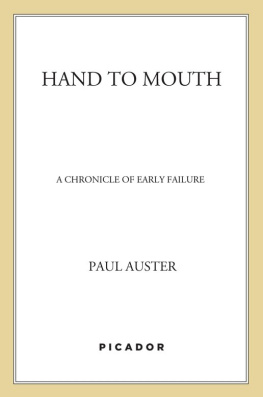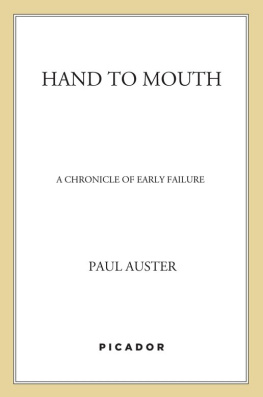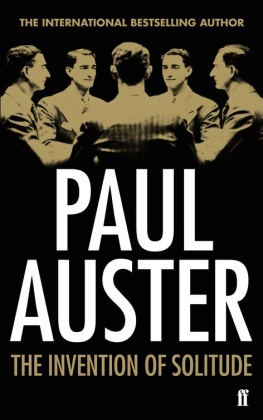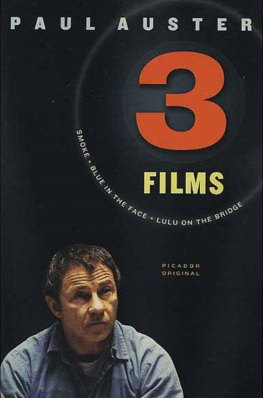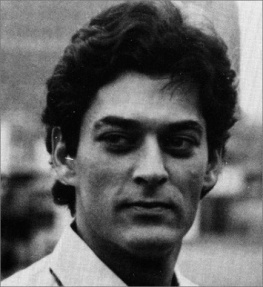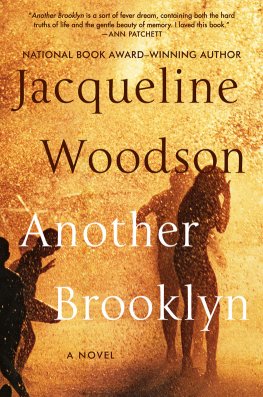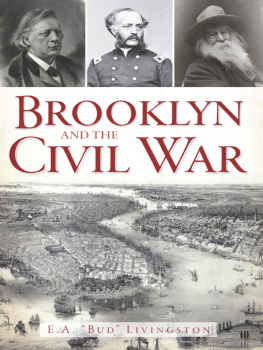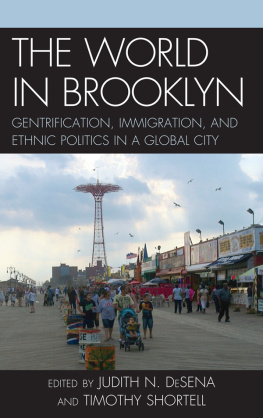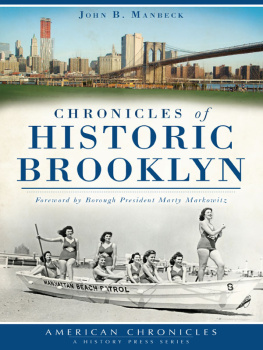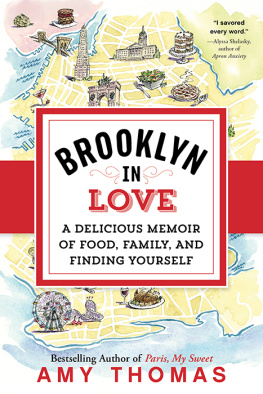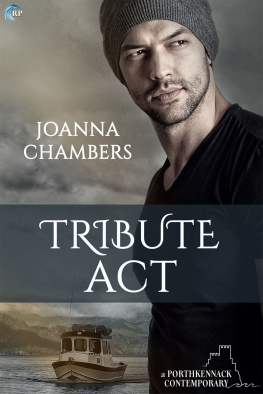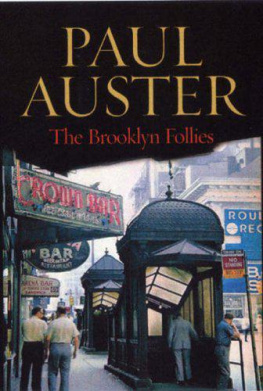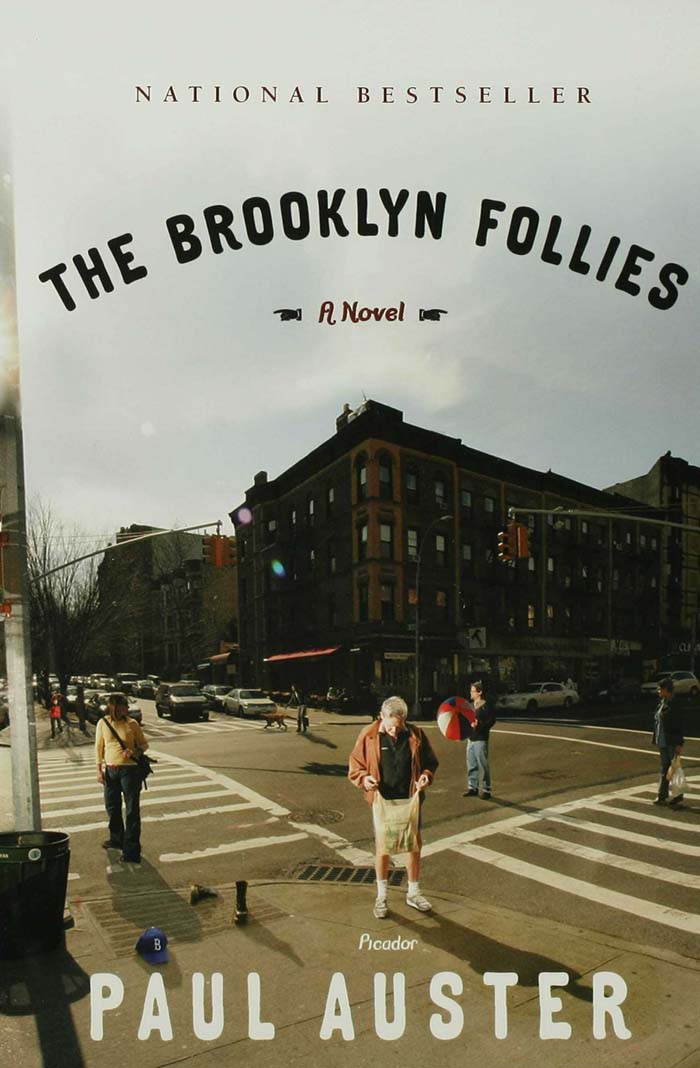
Paul Auster is the bestselling author of Oracle Night, The Book of Illusions, and Timbuktu. I Thought My Father Was God, the NPR National Story Project anthology, which he edited, was also a national bestseller. His work has been translated into thirty languages. He lives in Brooklyn, New York.
Also by Paul Auster
Novels
The New York Trilogy (City of GlassGhostsThe Locked Room)
In the Country of the Last ThingsMoon PalaceThe Music
of ChanceLeviathanMr. VertigoTimbuktu
The Book of IllusionsOracle Night
Nonfiction
White SpacesThe Invention of SolitudeThe Art of Hunger
Why Write?Hard to MouthThe Red NotebookCollected Prose
Screenplays
Three Films: Smoke, Blue in the Face, Lulu on the Bridge
Poetry
UnearthWall WritingFragments from ColdFacing the Music
Disappearances: Selected PoemsCollected Poems
Illustrated Books
The Story of My Typewriter (with Sam Messer) Auggie Wrens
Christmas Story (with Isol) City of Glass (adapted by Paul Karasik
and David Mazzucchelli)
Editor
The Random House Book of Twentieth-Century French Poetry
I Thought My Father Was God and Other True Tales from NPRs
National Story Project
Praise for Paul Austers The Brooklyn Follies
Paul Austers thirty-year career has been astonishing as well: novels, screenplays, poems, essays, illustrated tales, translations, scholarly editions of French verse. He seems almost a literary decathlete, able to excel in any genre.... His latest novel, The Brooklyn Follies, is perhaps his most engaging and compelling story.... A hopeful book, a series of finely crafted interlocking stories about loveabout its difficulties, about its mysteries and enormous redemptive powers.
The Plain Dealer (Cleveland)
Probably the first authentic attempt to deal with the post-September 11 world ... It is a multilayered tapestry, with whimsical chapter headings and Dickensian depth.
San Francisco Chronicle
Follies, like any of Austers previous books, is impossible to put down.
Star-Telegram (Philadelphia)
As rich in incident as it is in personalities... Though The Brooklyn Follies shares with Austers other works a universe of chance encounters, the affable, forthright voice of Nathan Glass makes this novel a particular pleasure. Belief in happiness might be just another of the Brooklyn follies, but Nathans winsome stories are an effective engine for joie de vivre. Instead of dying, the narrator brings to life a cast of buoyant Brooklynites.
The Atlanta Journal-Constitution
The characters shimmer, the anecdotes spark, the dialogue nimbly natters, the tale barrels along with the old-fashioned power of Nathans lime green Oldsmobile Cutlass.
Seattle Weekly
Is there a contemporary American novelist who believes more in the transporting, transformative power of story? No way.
Detroit Free Press
Paul Auster reminds us that our social and emotional infrastructure can creep up on us in beautiful and unexpected ways whether we like it or not, and that accepting this process and those people can be in itself heroic. By the end of this wonderful novel, there can be no doubt that Austers unprepossessing Nathan is a modern urban hero of a high order.
The Philadelphia Inquirer
Ever since The New York Trilogy nearly twenty years ago, Austerthrough dozens of bookshas produced increasingly dazzling, provocative writing. He may remind readers of Franz Kafka, Nathanael West, or Philip Roth, but Austeras brilliant postmodern parodist and satiristis a unique talent. He may, in fact, be Americas best writer.
BookPage
Austers prose is sharp, simple, compelling.
The Guardian (U.K.)
The thing you want to do this winter ... is to curl up with Paul Austers newest novel, The Brooklyn Follies. You want to do this for the quality of the writing. You want to do it for the story. You want to do it because its a Paul Auster bookpartly metafictional, partly wry, more than partly full of chance encounters, and blessedly devoid of intellectual prattle.
Baltimore Sun
Hucksters, people vanishing and reappearing, problems with language, the glancing invocation of those stalwarts Hawthorne and Poe and Thoreau and Whitman, whose presence is sprinkled throughout this authors body of workyes, its Auster.... A touching, even warm, story of families in recombination.
Chicago Tribune
A teeming and exuberant novel that is sure to drive up property values in Brooklyn.
The Buffalo News
The Brooklyn Follies is Auster at the top of his game.... His words are slinky and supple; his characters sing off the page.... Austers meditation on happiness and encroaching age ripens each page into mellow fruitfulness. This superb novel about human folly turns out to be tremendously wise.
New Statesman
THE
BROOKLYN
FOLLIES
PAUL
AUSTER
Picador
Henry Holt and Company
New York
THE BROOKLYN FOLLIES. Copyright 2006 by Paul Auster. All rights reserved. Printed in the United States of America. No part of this book may be used or reproduced in any manner whatsoever without written permission except in the case of brief quotations embodied in critical articles or reviews. For information, address Picador, 175 Fifth Avenue, New York, N.Y. 10010.
www.picadorusa.com
Picador is a U.S. registered trademark and is used by Henry Holt and Company
under license from Pan Books Limited.
For information on Picador Reading Group Guides,
as well as ordering, please contact Picador.
Phone: 646-307-5629
Fax: 212-253-9627
E-mail: readinggroupguides@picadorusa.com
Designed by Victoria Hartman
Cant Help Lovin Dat Man, by Jerome Kern, Oscar Hammerstein II 1927, renewed 1954, 1975, 2002 by Universal-Polygram International Publishing/ASCAP. Used by permission. International copyright secured. All rights reserved.
Library of Congress Cataloging-in-Publication Data
Auster, Paul, 1947
The Brooklyn follies / Paul Auster.
p. cm.
ISBN-13: 978-0-312-42623-1
ISBN-10: 0-312-42623-2
1. Middle-aged menFiction. 2. Brooklyn (New York, N.Y.)Fiction. 3. Park Slope (New York, N.Y.)Fiction. 4. AutobiographyAuthorshipFiction. 5. RetireesFiction. I. Title.
PS3551.U77B76 2006
813.54dc22
2005040201
First published in the United States by Henry Holt and Company
10 9 8 7 6 5
For my daughter
Sophie
THE BROOKLYN FOLLIES
OVERTURE
I was looking for a quiet place to die. Someone recommended Brooklyn, and so the next morning I traveled down there from Westchester to scope out the terrain. I hadnt been back in fifty-six years, and I remembered nothing. My parents had moved out of the city when I was three, but I instinctively found myself returning to the neighborhood where we had lived, crawling home like some wounded dog to the place of my birth. A local real estate agent ushered me around to six or seven brownstone flats, and by the end of the afternoon I had rented a two-bedroom garden apartment on First Street, just half a block away from Prospect Park. I had no idea who my neighbors were, and I didnt care. They all worked at nine-to-five jobs, none of them had any children, and therefore the building would be relatively silent. More than anything else, that was what I craved. A silent end to my sad and ridiculous life.


